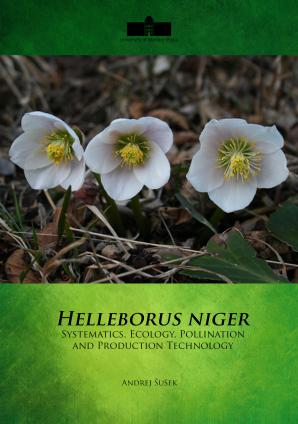Helleborus Niger: Systematics, Ecology, Pollination and Production Technology
Keywords:
beneficial microorganisms, Helleborus niger L., systematic, pollination, cultivation, Christmas roseSynopsis
The scientific monograph covers the botanical classification of the genus Helleborus L. and the Christmas rose species (Helleborus niger L.), which has undergone numerous changes throughout its botanical history. The Christmas rose is becoming increasingly important in the ornamental plant market. Its characteristic flowering in the coldest months of the year represents a great advantage over many other species of ornamental plants. As the Christmas rose does not require high temperatures to start flowering, its cultivation can be considered affordable and environmentally friendly. The supply of attractive varieties is likely to be one of the key factors that will affect its popularity in the future. The number of genetically improved (bred) varieties is limited on the market, so selective breeding of Christmas rose will become inevitable in the future. The presented results of pollination analyses, related to insect activity, are important for breeding. Observations indicate that the Christmas rose is an entomophilous and a predominantly allogamous species. Knowledge of plant ecology and cultivation technology will also be exceptionally important. In intensive cultivation, the production technology for Christmas roses is still to a large extent incomplete. The monograph includes scientific findings on the ecology and biology of the Christmas rose, its reproductive processes, and the production technology for potted plants. The monograph also presents the results of the study on the effects of beneficial microorganisms (bacteria and endomycorrhizal fungi) on the growth and development of seedlings from in vivo and in vitro environments. The results of the study indicate that biotisation is a useful technology and that inoculation with specific microorganisms has a beneficial effect on growth.
Downloads







